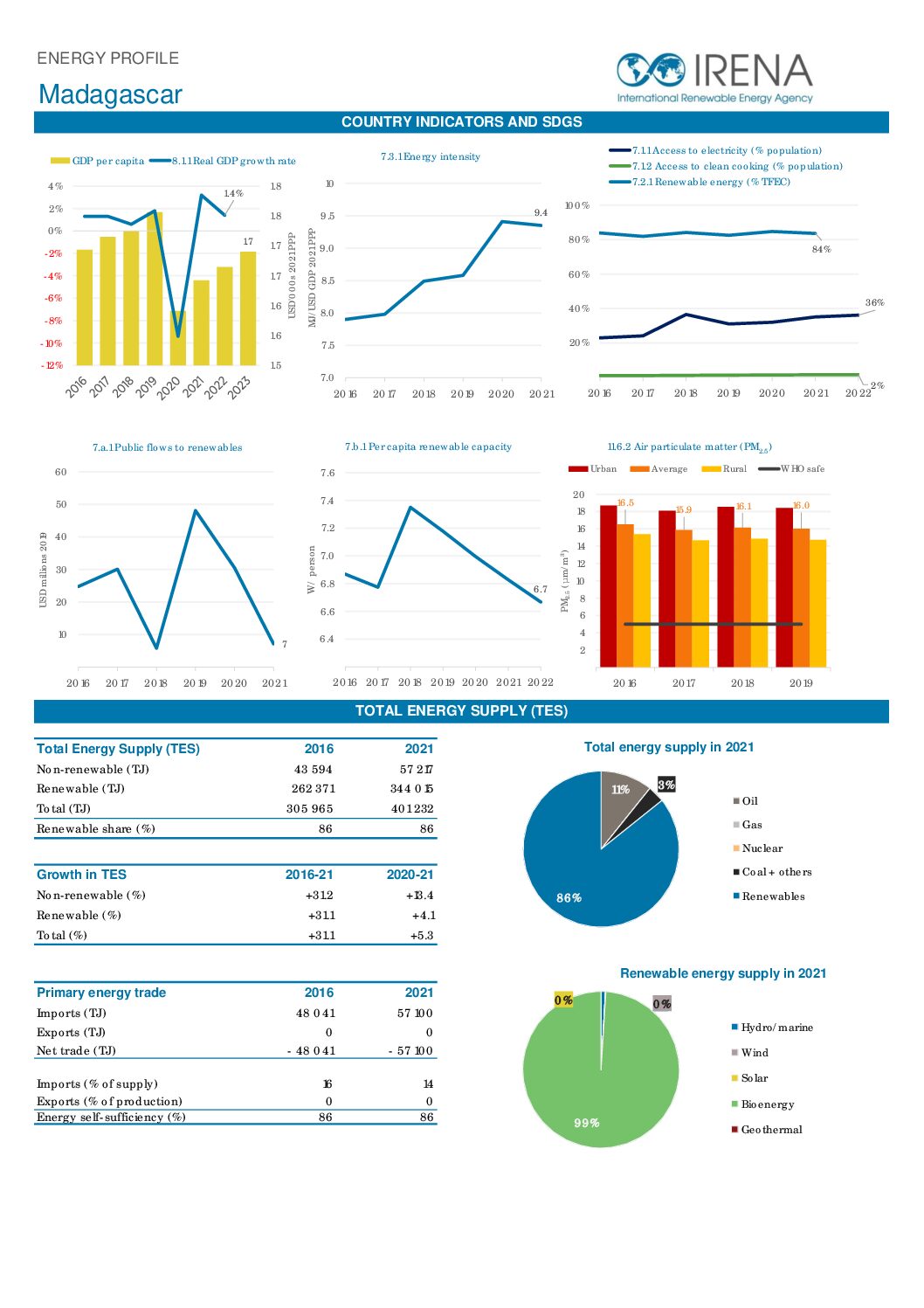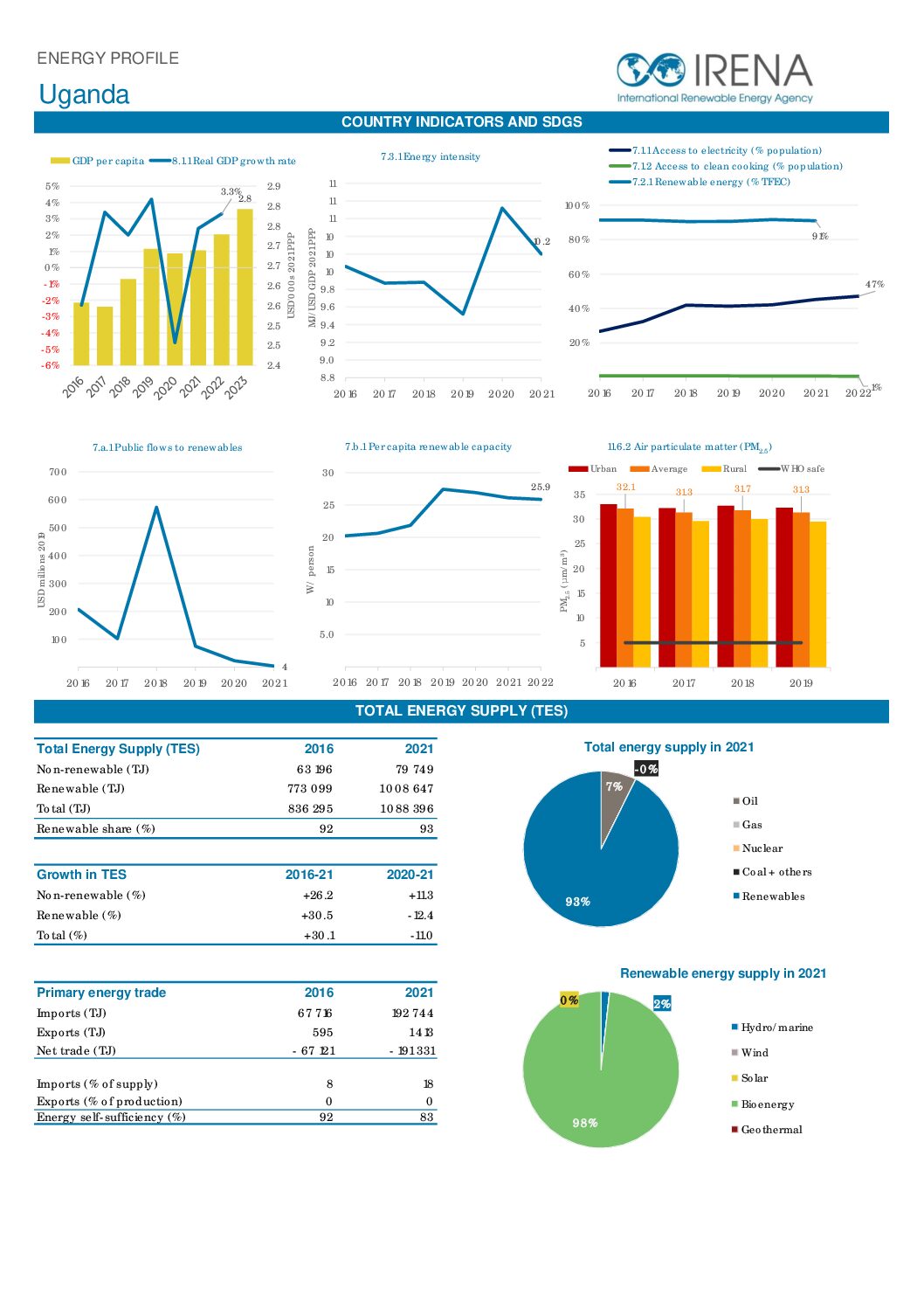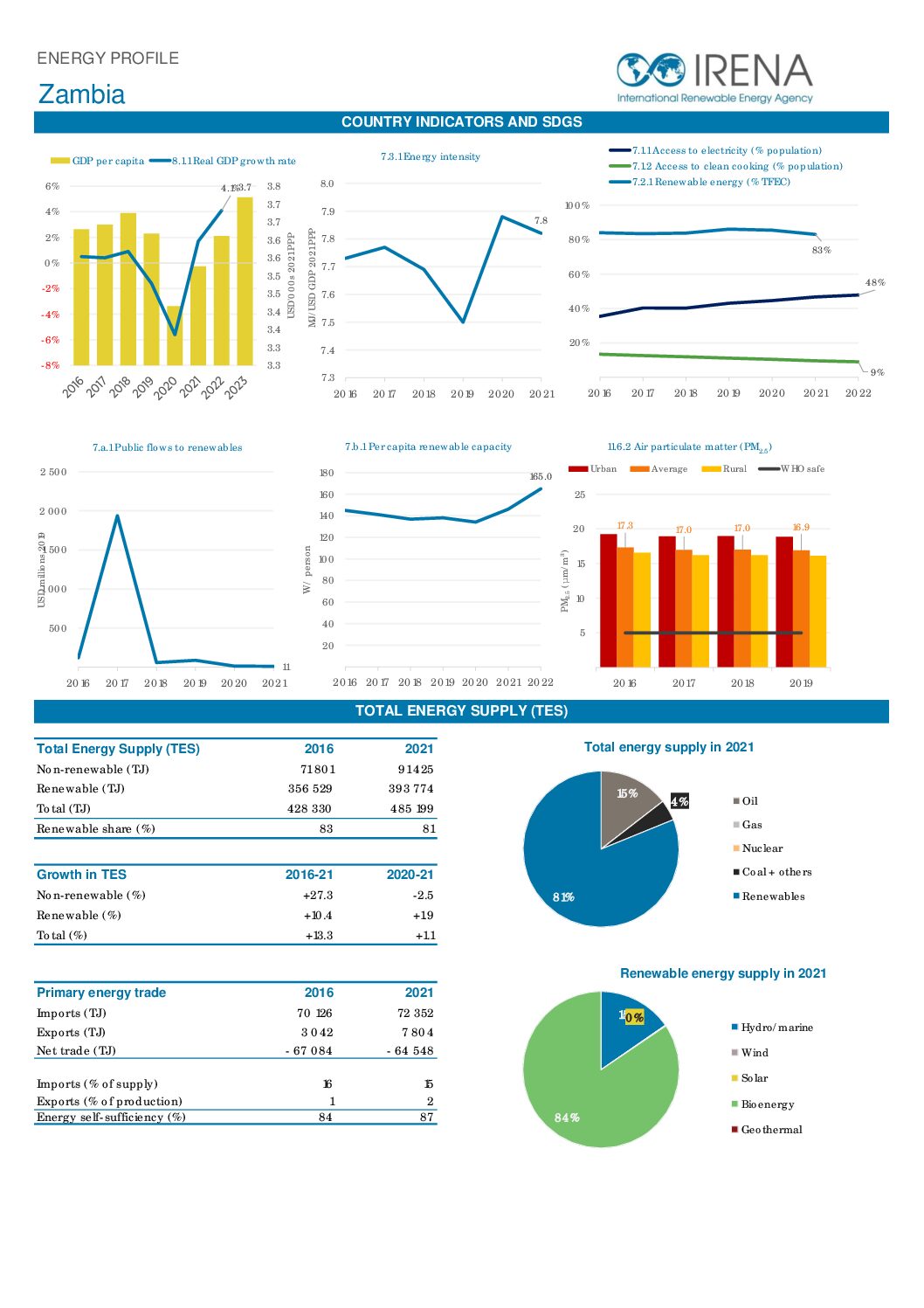This energy profile provides recent data on the energy sector of Madagascar, including generation mix,total generation, renewable energy potential and more.
This energy profile provides recent data on the energy sector of Uganda, including generation mix,total generation, renewable energy potential and more.
This energy profile provides recent data on the energy sector of Zambia, including generation mix,total generation, renewable energy potential and more.
This web page provides an overview of the energy sector of Guatemala, including data on the energy mix, energy use and emissions; and a policy overview.
This web page provides an overview of the energy sector of Uganda, including data on the energy mix, energy use and emissions; and a policy overview.
The Global Innovation Hub aims to promote transformative innovations for a low-emission and climate-resilient future.
This report assesses the progress of the energy transition in the Dominican Republic and identifies future pathways.
Institutions all over the world are setting up microcredentials in responses to calls from governments and industry: short courses, usually offered online by accredited institutions, with an emphasis on the needs of the workplace. They are also often used for retraining and upskilling. This book explains how to start offering microcredentials as an academic institution.
This guide aims to accelerate the flexibility and responsiveness of learning systems by providing guidance on the design, issue and recognition of micro-credentials.
This guide aims to help energy statisticians understand the various elements and processes involved in renewable energy data collection and management, and identify capacity gaps. It covers seven requirements for effective data management: 1. Legal and institutional frameworks; 2. Well-defined data requirements; 3. Sufficient skilled personnel; 4. Clear methodologies and processes; 5. Appropriate data collection […]






